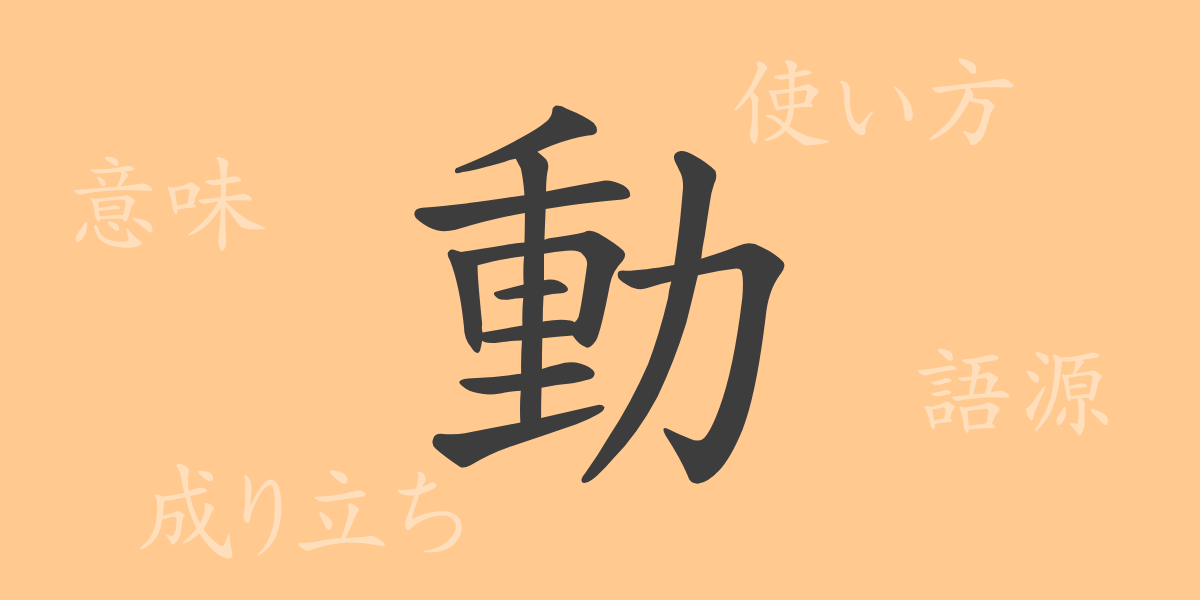In Japanese writing culture, Kanji plays a role far beyond merely conveying information. It also reflects the history and philosophy embedded in its shape and structure. This article will explore the commonly used Kanji ‘動 (どう)’, delving into its profound world by examining its origins, meaning, and usage in daily life.
Origins of ‘動 (どう)’
The Kanji ‘動’ originated from ancient China as a pictograph representing movement or change. It essentially depicts something that moves only when force is applied, incorporating the element ‘力’ to represent power. This character visually expresses the moment something begins to move or initiate activity, evolving over history to its present form.
Meaning and Usage of ‘動 (どう)’
‘動’ indicates the action of changing position or state. It is also used to describe the fluctuation of emotions or to move one’s heart. As a versatile character, it appears in various contexts in Japanese, including verbs, nouns, and adjectival verbs, making it one of the essential Kanji in the language.
Readings, Stroke Count, and Radical of ‘動 (どう)’
Understanding the readings and structure of ‘動’ can deepen comprehension.
- Readings: On’yomi ‘ドウ’, Kun’yomi ‘うご・く, うご・かす’
- Stroke Count: A total of 11 strokes
- Radical: Motion (むすぶへん)
Phrases, Idioms, and Proverbs Using ‘動 (どう)’
There are numerous idioms and proverbs that include ‘動’, each illustrating the richness of Japanese expression. For instance, ‘動機’ refers to the cause or reason behind an action, ‘動揺’ describes a state of being unsettled or unstable. Proverbs such as ‘一刻を争う’ and ‘臥薪嘗胆’ also emphasize the critical role of the character ‘動’.
Conclusion on ‘動 (どう)’
The Kanji ‘動’ is intricately linked to actions and changes in our lives, hence its frequent use. Even a single examination of this character reveals the depth of the Japanese language and the richness of its Kanji culture. Through this exploration, we hope readers have rediscovered the significance and allure of ‘動’.

























